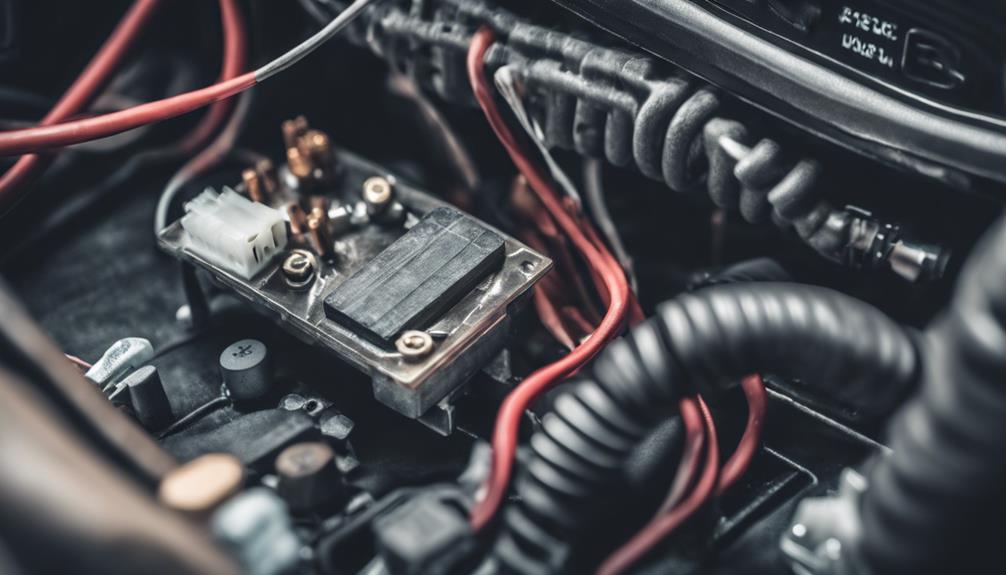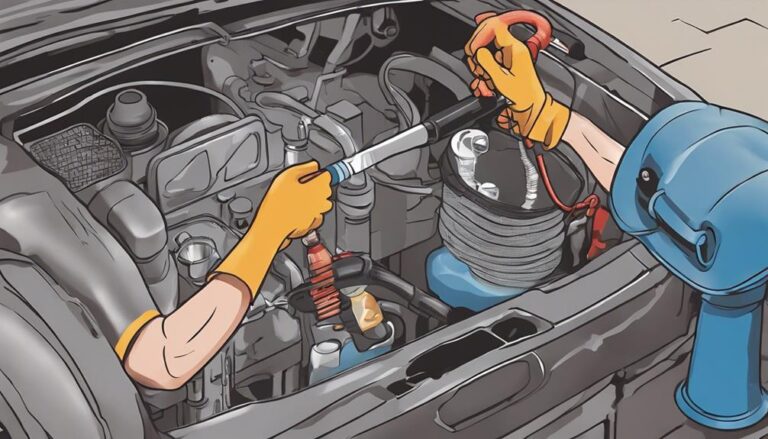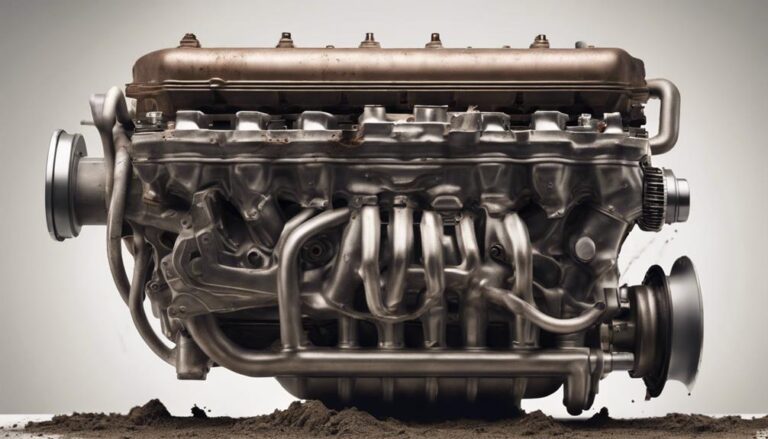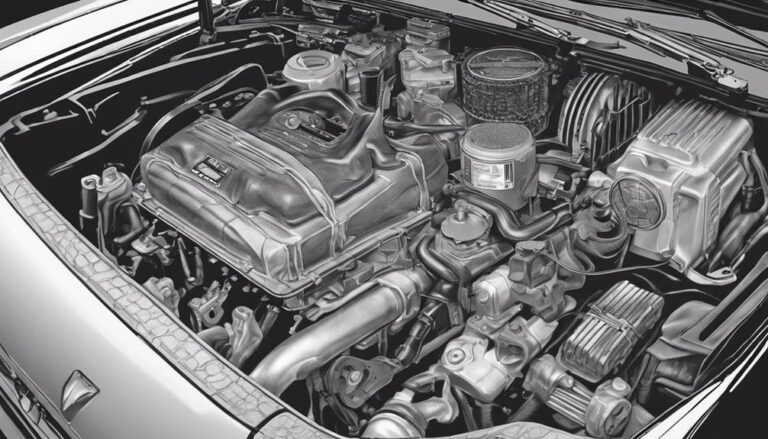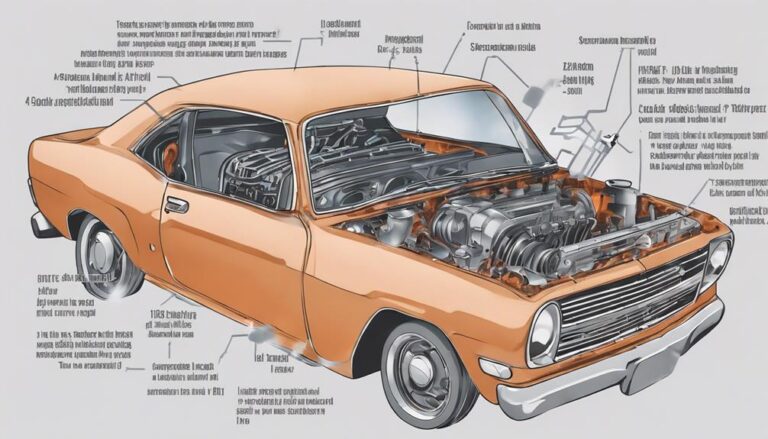Understanding Blower Motor Resistor in Car Heating Systems
Ever wondered about the unsung hero of your car's heating system, the blower motor resistor? Well, buckle up because this seemingly small component can cause some big headaches if not functioning properly.
When your car's heating or cooling system starts acting up, often the culprit lies within this unassuming part. Understanding how this resistor works and its pivotal role in maintaining your car's climate control could save you from a chilly situation.
Key Takeaways
- Regulates fan speed for optimal heating and cooling.
- Identifies signs of a failing resistor for timely action.
- Importance of proper testing and maintenance for efficiency.
- Consider cost factors and repair options for effective solutions.
Importance of Blower Motor Resistor
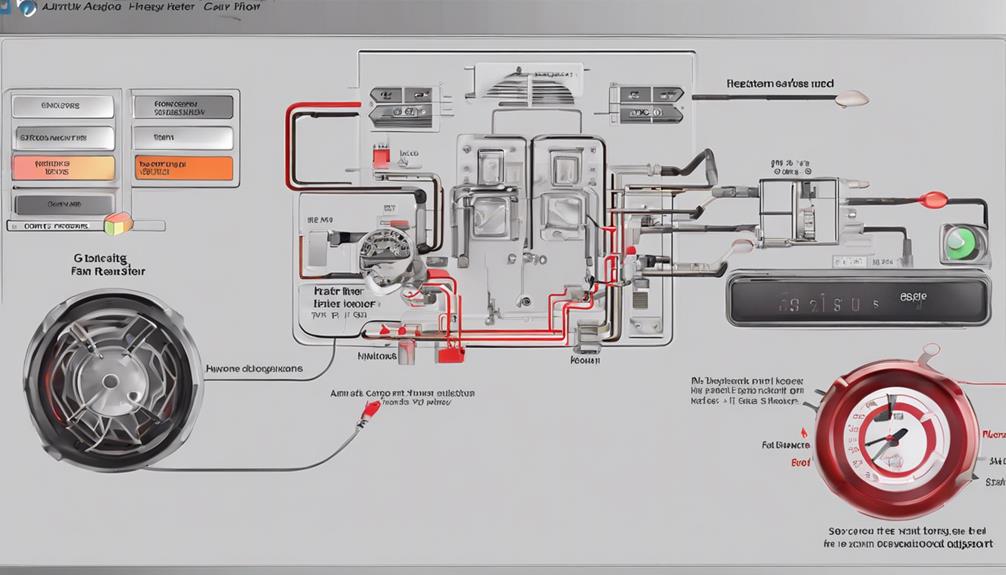
The blower motor resistor plays an important role in regulating the fan speed of your car's heating and cooling system. This small yet crucial component is responsible for adjusting the speed of the blower motor, which ultimately controls the airflow within your vehicle. By modulating the electrical current that flows to the blower motor, the resistor can efficiently improve the overall performance of your heating and cooling system.
One key aspect where the blower motor resistor contributes significantly is in energy consumption. By allowing for different fan speeds, the resistor helps optimize the amount of power used by the blower motor. This not only enhances the efficiency of your car's heating and cooling system but also helps in reducing unnecessary energy wastage.
Understanding the importance of the blower motor resistor not only ensures a comfortable driving experience but also aids in maintaining the longevity of your vehicle's heating system. Regularly checking and replacing a faulty resistor can lead to improved efficiency and lower energy consumption, making it a vital component for your car's overall performance.
Signs of a Failing Resistor
Experiencing inconsistent airflow from your car's heating and cooling system could indicate a failing blower motor resistor. Other signs of a failing resistor include the fan only working on certain speeds, or the fan not working at all.
To diagnose this issue, you can use testing methods like a multimeter to check for continuity. Troubleshooting the resistor involves inspecting for any visible damage or burnt smells.
If you confirm that the blower motor resistor needs to be replaced, you have several options. You can choose to replace it with an original equipment manufacturer (OEM) part or explore aftermarket brands that offer compatible replacements. When selecting a replacement, consider factors like quality, warranty, and compatibility with your vehicle's make and model.
Common Repair Techniques
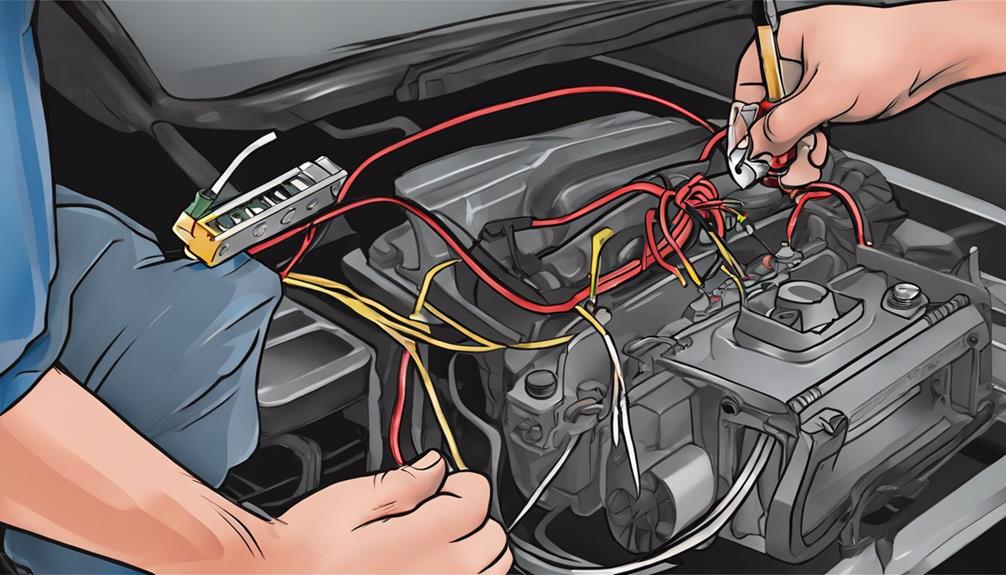
When troubleshooting a failing blower motor resistor in your car's heating system, common repair techniques involve testing for continuity using a multimeter.
Troubleshooting steps for a faulty blower motor resistor start with locating the resistor, typically found near the blower motor. Once located, use a multimeter to check for continuity across the resistor's terminals. If there's no assurance, it indicates a defective resistor that needs replacement.
Maintenance tips include making sure the electrical connections are clean and secure, as poor connections can lead to resistor failure. Additionally, regularly inspecting the HVAC system and addressing any unusual noises or issues promptly can help prevent further damage to the resistor.
When replacing the resistor, it's advisable to follow the manufacturer's guidelines and use quality replacement parts to ensure proper functioning of the heating system. By following these common repair techniques and maintenance tips, you can effectively address blower motor resistor issues in your car's heating system.
Cost of Resistor Replacement
Replacing the blower motor resistor in your car's heating system can vary in cost depending on factors such as the make and model of your vehicle, the location of the resistor, and the labor rates of the repair shop. Repair costs can range from $50 to $200 for the part itself, with labor costs adding an additional $50 to $100 per hour. The table below gives you an approximate idea of what you might expect to pay for a blower motor resistor replacement based on different scenarios:
| Make/Model | Part Cost Range ($) | Labor Cost Range ($) |
|---|---|---|
| Economy Vehicle | $50 – $100 | $50 – $75 |
| Mid-Range Vehicle | $75 – $150 | $75 – $100 |
| Luxury Vehicle | $100 – $200 | $100 – $125 |
| Resistor Location | ||
| Easily Accessible | $50 – $100 | $50 – $75 |
| Hard to Access | $75 – $150 | $75 – $100 |
When replacing the blower motor resistor, it is important to opt for a quality replacement to ensure proper functioning and longevity. Cheaper alternatives may result in frequent failures and additional expenses in the long run.
DIY Vs. Professional Repair
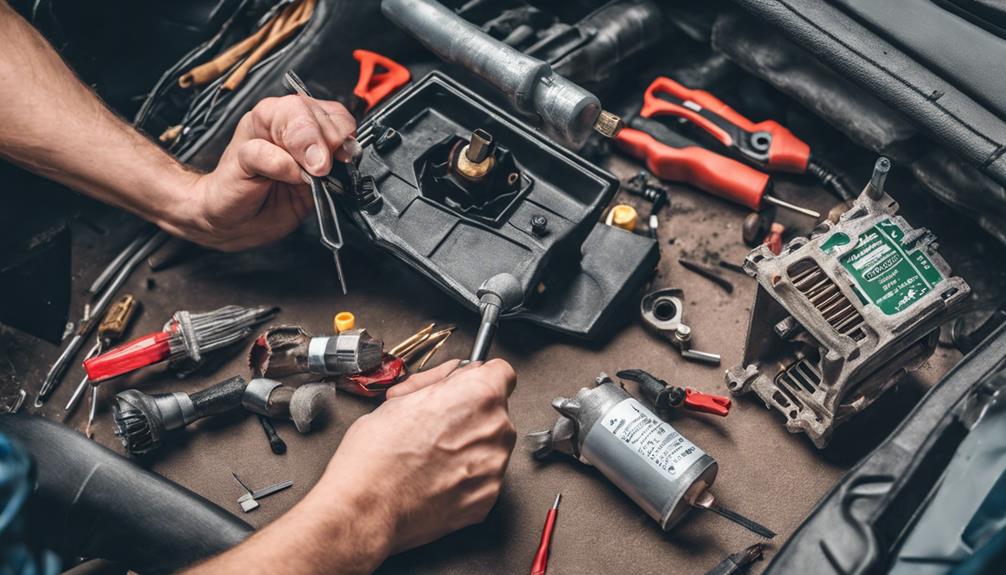
To determine whether to tackle the blower motor resistor replacement yourself or seek professional help, consider your comfort level with automotive repairs and the complexity of the task. If you enjoy challenges and have some experience working on cars, a DIY approach may be feasible. However, if you're unsure about your abilities or the repair seems too complex, it's best to opt for professional expertise.
Here are some factors to help you decide:
- DIY Challenges
- Assess your skills: Evaluate your experience with automotive repairs.
- Tools required: Consider if you have the necessary tools for the job.
- Time commitment: Determine if you have enough time to complete the repair.
- Potential risks: Understand the risks involved in DIY repairs.
Frequently Asked Questions
Can a Failing Blower Motor Resistor Cause Other Components in the Car Heating System to Malfunction?
When a blower motor resistor fails, it can impact other components in the car heating system. The faulty resistor can cause electrical connections to overheat, affecting wiring and heat dissipation, leading to malfunctions in the entire system.
How Long Does a Blower Motor Resistor Typically Last Before Needing Replacement?
You know your blower motor resistor can last longer than a marathon runner, but if troubleshooting reveals issues, replacing it could cost less than a fancy dinner out, saving you from chilly drives.
Are There Any Preventative Maintenance Steps That Can Be Taken to Prolong the Life of a Blower Motor Resistor?
To prolong your blower motor resistor's life, try cleaning debris from the system regularly for best airflow regulation. Consider insulating nearby components for temperature control. These preventative maintenance steps can help extend the lifespan of your resistor.
Are There Aftermarket Blower Motor Resistors Available, and Are They as Reliable as OEM Parts?
When it comes to aftermarket blower motor resistors, you can find a range of options. Quality control varies, so research brands carefully. Installation tips include checking compatibility and ensuring connections are secure for reliable performance.
Can a Faulty Blower Motor Resistor Cause the Car's Air Conditioning System to Malfunction as Well?
If your blower motor resistor is faulty, it can indeed cause issues with your car's air conditioning system. Wiring problems are common culprits. Troubleshooting early can prevent further damage and impact on fuel efficiency.
Conclusion
To sum up, without a working blower motor resistor, your car's heating system is as valuable as a block of ice in a desert.
Don't wait until you're shivering behind the wheel to address this essential component.
Take action now to guarantee your comfort and safety on the road.
Remember, a small resistor can make a huge difference in your driving experience.

